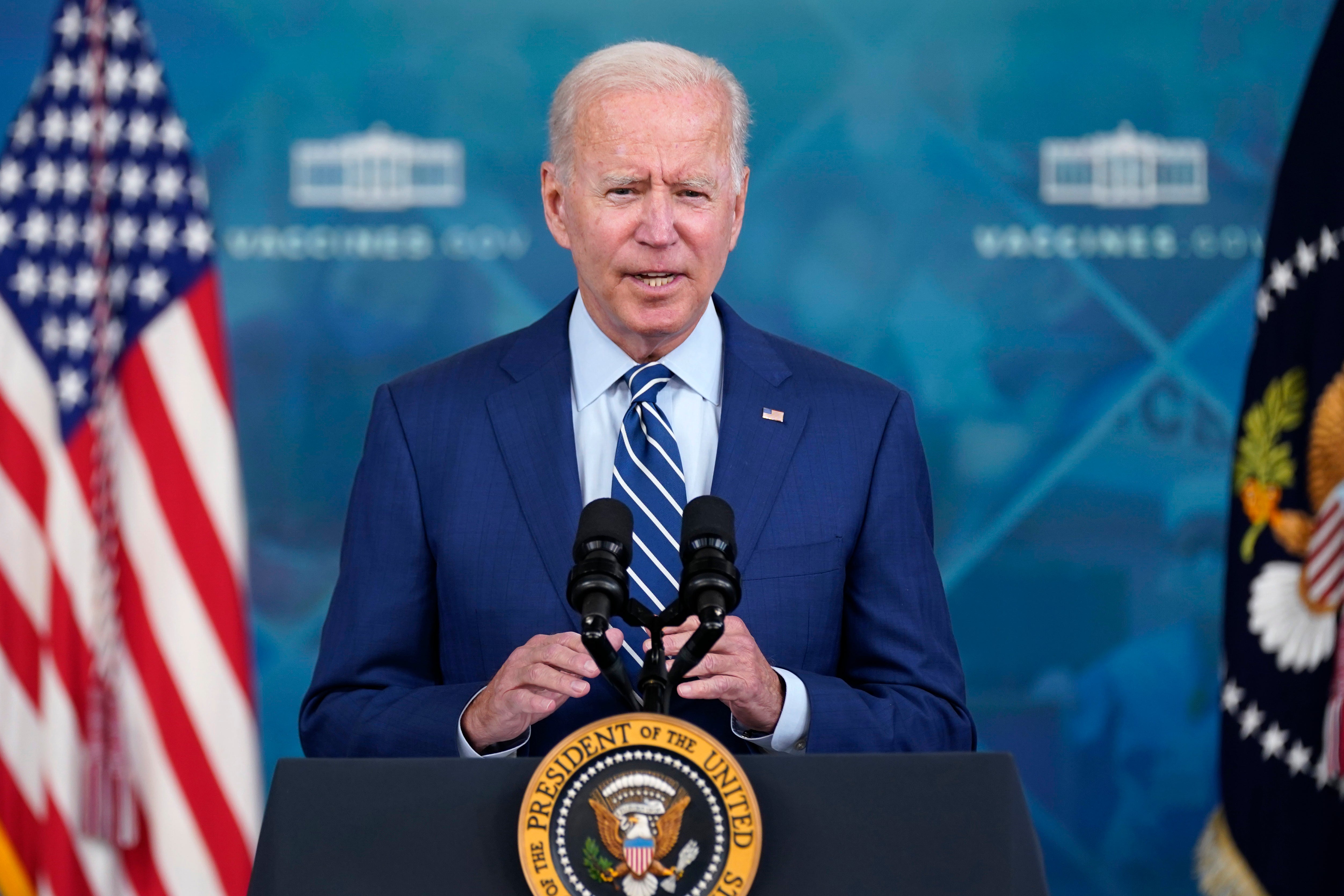Biden skips Chicago trip as legislative agenda hangs by a thread
Key progressive lawmakers threatened to vote against infrastructure bill

US president Joe Biden cancelled his Wednesday trip to Chicago to continue negotiations with Democratic lawmakers over key pieces of legislative agenda, including his $3.5 trillion budget reconciliation package and the $1.2trillion infrastructure bill, that risk failing due to a divided legislature.
“In meetings and calls over the weekend and through today, President Biden has been engaging with members of Congress on the path forward for the Build Back Better Act and the Bipartisan Infrastructure Deal,” a White House official said on Tuesday.
“He will now remain at the White House tomorrow to continue working on advancing these two pieces of legislation to create jobs, grow the economy and make investments in families, rather than failed giveaways to the rich and big corporations.”
Some key progressive lawmakers in the House have threatened to vote against the infrastructure bill slated to come up on Thursday, while others are in disagreement over the size of the $3.5 trillion package.
With Republicans opposed and no votes to spare, the president scrapped his travel plans following a meeting with Democratic Senators Joe Manchin and Kyrsten Sinema in a bid to bridge the gap between the moderate and progressive lawmakers over the two key pieces of legislation, reported CNN.
“There is a strong sense that progress is being made, and the president is staying to continue his engagement,” an administration source familiar with the talks told Reuters.
The development came hours after press secretary Jen Psaki told the media that the president would be travelling to Chicago to communicate about “the effectiveness of vaccine mandates.”
Together, both the bills form the foundation for Mr Biden’s economic agenda and are a part of his Build Back Better plan.
The ambitious infrastructure package is focused on rebuilding infrastructure and provides for $550bn in new federal funding on transport infrastructure, high-speed internet and efforts to fight climate change.
The budget reconciliation package, on the other hand, is a social spending bill. It includes big-ticket priorities like universal pre-kindergarten education, paid family and medical leave, home and community-based care for elderly people and people with disabilities, as well as the addition of hearing, dental and vision to Medicare.
For a bill to not be sidestepped as a filibuster, it requires 51 votes in the Senators. Democrats currently have 50 senators, with vice president Kamala Harris casting any tie-breaking vote. This means that Democrats from each caucus needs to vote in support of the bill for it to stand.
However, last month, senator Kyrsten Sinema said she would not support the legislation carrying a $3.5 trillion price tag, while House speaker Nancy Pelosi threatened to tank the bipartisan infrastructure proposal till the Senate passes the reconciliation package. This has led to a political standoff within the party and could result in neither bill being passed.
The president was in touch with progressive lawmakers, Ms Pelosi and senate majority leader Chuck Schumer, reported CNN.
“You know me. I’m a born optimist,” Mr Biden had said on Monday about the deeply divided Democrats over the pair of bills.
Ms Pelosi told reporters at the Capitol on Tuesday, “In the next day or so we hope to come to a place where we can all move forward.”
With Republicans united against the broader budget bill, federal government funding due to expire on 30 September and borrowing authority set to run out around 18 October, Democrats who narrowly control both the houses have just three days to avert a possible government shutdown by Thursday midnight.
Fiscal shutdowns are a regular feature of US politics and can negatively affect hundreds of thousands of federal workers who are in the middle of a pandemic. The longest shutdown in US history was for 35 days — from 22 December 2018 to 25 January 2019 — during Donald Trump’s presidency.
Join our commenting forum
Join thought-provoking conversations, follow other Independent readers and see their replies
Comments